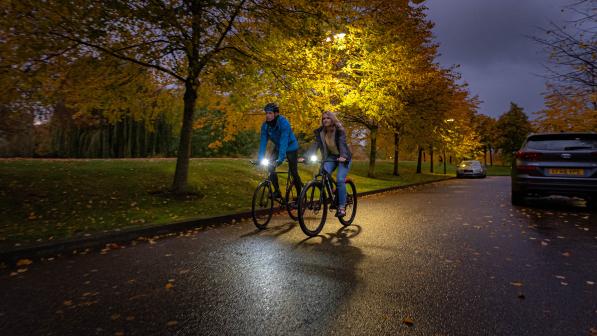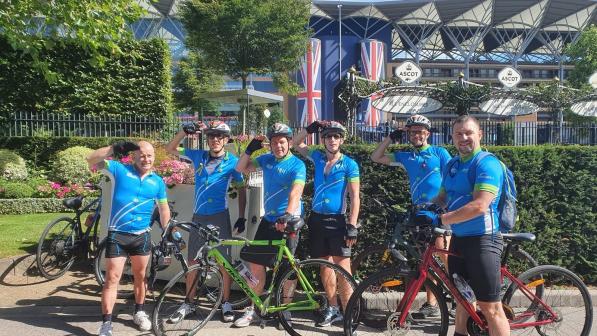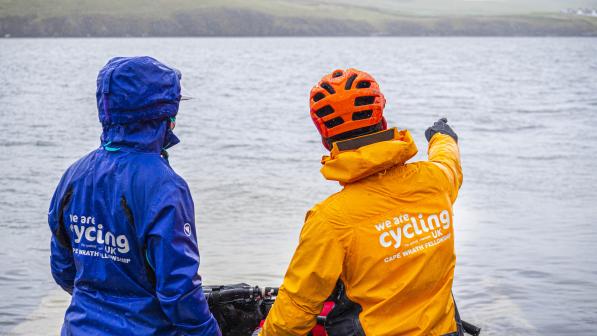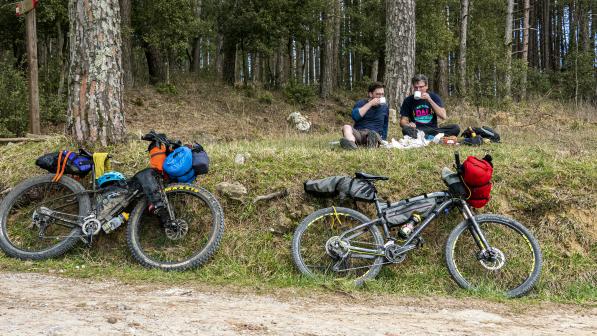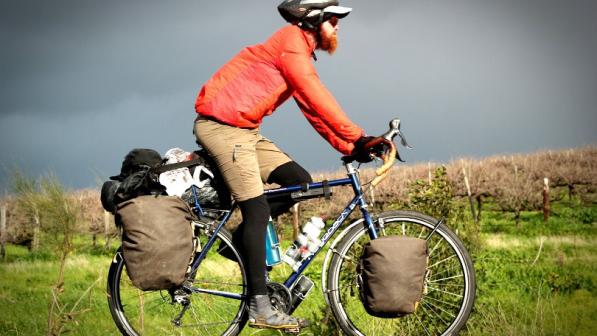Jools Walker talks cycling and depression

The book Back in the Frame charts Jools's journey back to riding a bike after stopping when she was a teenager.
Almost a decade ago, she bought a Pashley Princess through the Cycle to Work Scheme and started the Velo City Girl blog. Cycling from her home in East London transformed her commute to work and then the direction of her career, as she got a job in the cycling industry.
Jools lives with depression, in her book she refers to it as her 'sparks'.
"When I feel sparks, there is nowhere for the thoughts to go, they are just bouncing in my head like volts of electricity - my head feels like a ticking time-bomb that might explode," said Jools. "The sparks started to die down when I was comfortable enough to talk about it and let someone know I needed help."
Is cycling the answer to tackling mental health issues?
In the book Jools wrote, "Exercise can be a huge help for a lot of people when it comes to mental health, but I’ve never been a believer in it being a fix-all. Perhaps that sounds strange coming from me - someone who evangelises the benefits of being on a bike - but I'm very wary of touting exercise as a 'one size fits all' cure for depression.
I'm very wary of touting exercise as a 'one size fits all' cure for depression.
Jools Walker
"There have been so many times where I wanted to use cycling - one of my biggest passions - to make me feel better, but when I found myself crying my eyes out at the thought of getting out of bed and straight onto a saddle, it made me feel even sadder.
"It is incredibly difficult to get yourself motivated for exercise when you're depressed, and even harder to muster up the motivation for exercise when you are mentally exhausted."
Clarifying this further in interview, Jools explained, "One of the reasons why I say that is because of periods where getting on a bike is one of the very last things I want to do. When you don't take pleasure anymore from something that brings you joy it's called anhedonia and is a sign of depression."
Jools was intentionally selective about how she wrote about cycling and mental health. "I wanted to be very careful not to say that cycling is going to sort this out for you and cycling is going to solve all your mental health problems, as I know from experience that hasn't always worked for me, but sometimes it helps."
Throughout the book Jools enthuses about the joy that cycling brings her, yet her relationship with it is complex, like an love affair, a long-term relationship with ups and downs.
Seeking medical help
At points when Jools didn't feel up to riding her bike at all, she thought a lot about going to the doctors for help but was reluctant at first.
"I went to my doctors and one of my biggest fears was having to go on medication, I felt I would have failed if that happened...but I did go on medication and it helped. Now I'm weaned off medication (Citalopram), but the option is still there and I have no shame now if I need to go back to my doctors and ask again."
When medication helped, "the fog lifted" and Jools woke earlier and began to cycle to work again, changing her route and taking things slowly to inject more joy in her working day. Slowly she built up to cycling with her partner again at weekends and started #CoffeeCycleSaturday.
That was a few years ago and now Jools has just started talking therapy too, but she was on a waiting list for almost a year to get it through the NHS. "Talking therapy helps me to unpack a lot of things, even though I write my thoughts down, blog and speak to people on panels and in interviews but I have never had one-on-one time with a professional before."
When Jools opened up about her depression in her blog and told her followers on social media she was finally getting talking therapy there was an "outpouring of direct messages about how good CBT (Cognitive Behavioural Therapy) was for them."
Support from friends and family
The cycling community features in the book and shows how cycling can bring people together and help find new friends and places.
Jools said, "I have met so many new people cycling through the blog or riding alongside people, cycling has given me a second family."
I have met so many new people cycling through the blog or riding alongside people, cycling has given me a second family.
Jools Walker
But it is Jools's mum Gemma who shines through the book and her blog as her biggest inspiration and support. The book's dedication to her is extremely heart-warming 'For my Mother Gemma. Thanks for always believing in me. I love you.'
"Mum is the biggest cheerleader in my life, lucky I still have her. Mum lives with depression as well so we both understand what we are going through. I am her carer and sometimes I don’t want to burden her, but we support each other. She is one of the strongest black women that I know and is my role model."
Another big influence in encouraging Jools with her cycling is her partner Ian. After six months away from cycling due to a mix of asthma, colds and depression, last Christmas Ian noticed Jools looking at a metallic purple Brompton and bought it for her as a surprise Christmas present. It was a risk, but it was the nudge she needed to get back in the saddle once more.
The folding bike gave Jools, who was in another stressful and low period, the option of going for a small ride and getting the train or a lift back if she wasn't feeling well enough.
On Christmas day she was so excited to have a new bike after months away from cycling that she went for a ride as soon as she could in her pyjamas!
Jools said, "I will never be cured or fixed, I live with it, but depression doesn’t define me but it is part of who I am and I have had to make peace with that."

Jools's advice to others who are struggling
- You should not feel ashamed, let go of shame, there's a taboo about talking about mental health, everyone has mental health just as you have physical health.
- Let someone know you need help.
- Notice the signs.
- Look out for anhedonia - which is the inability to feel pleasure doing things you usually really like. Jools notices this riding her bike.
- Taking time out, slow down, assess what is happening with you.
- Don’t ignore the signs and try and find distractions.
- Stop and look back before looking forward.
- Accept it is a work in progress.
- Contact Mind for information or Samaritans if you want to talk.
Jools's advice to someone whose loved one has mental health issues
- Don’t say "Cheer up, it could be worse" - as the last thing they want to hear is everything is great outside.
- Learn about what mental health issues are.
- Look out for the symptoms (check out Mind, the mental health charity's advice for helping others).
- Tread carefully.
- Let the person know you are there for them.
- Keep in touch with them.


